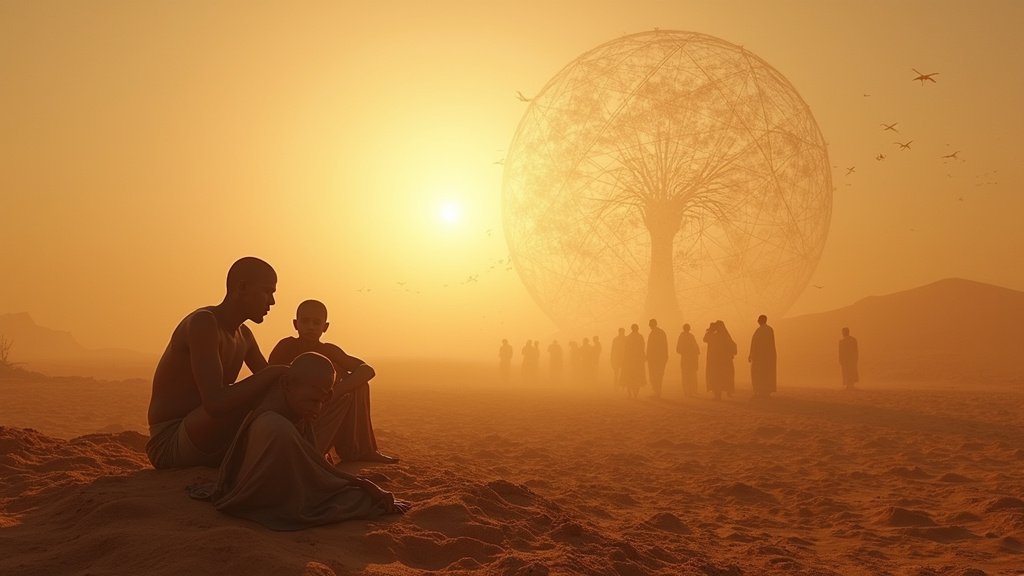A devastating famine has been officially confirmed in the Gaza Strip, with the United Nations-backed Integrated Food Security Phase Classification (IPC) reporting that over half a million people are enduring catastrophic hunger. The crisis is expected to worsen and spread across the enclave if humanitarian aid restrictions persist.
Gaza Faces Catastrophic Famine Conditions
The IPC’s latest analysis, released on August 22, 2025, confirms that Gaza Governorate is experiencing famine, meeting the critical thresholds of extreme food deprivation, acute malnutrition, and starvation-related deaths. The report indicates that 514,000 Palestinians, nearly a quarter of the population, are currently in famine conditions. Projections suggest this number could rise to 641,000 by the end of September 2025, with famine expected to expand to Deir al-Balah and Khan Younis governorates.
According to the report, over 1.07 million people (54 percent) are in Emergency (IPC Phase 4), and 396,000 people (20 percent) are in Crisis (IPC Phase 3). Acute malnutrition among children is accelerating at a “catastrophic pace,” with over 12,000 children identified as acutely malnourished in July alone, a six-fold increase since the start of the year. Of these, nearly one in four are suffering from severe acute malnutrition, the deadliest form. UN agencies and aid organizations have expressed grave concern, with some labeling the situation a “man-made disaster” and a “failure of humanity itself,” urging an immediate ceasefire and unimpeded access for humanitarian aid. Aid agencies report that Israel’s “systematic obstruction” of aid has contributed to the crisis, with food and clean water reportedly being used as “weapons of war.”
Ukraine Seeks Global South Support for Peace
Amidst these global crises, Ukrainian President Volodymyr Zelenskyy has intensified his diplomatic efforts, urging countries in the “Global South” to exert pressure on Russia to end the war in Ukraine. Speaking after a conversation with South African President Cyril Ramaphosa, Zelenskyy stressed the importance of these nations sending “relevant signals” to push Russia toward peace. He noted that Moscow is continuing to stall diplomatic efforts, despite Ukraine’s readiness for any format of meeting with Russian President Vladimir Putin.
This appeal comes as renewed diplomatic initiatives, including those spearheaded by U.S. President Donald Trump, have appeared to stall. The United States has previously renewed threats of sanctions if no progress is made on peace talks within a specified timeframe. Ukraine has been actively engaging with Global South countries, recognizing their crucial role in achieving a lasting peace. Many nations in the Global South have sought to maintain a neutral stance, balancing their diplomatic and economic ties with both Russia and the West.
Broader International Landscape
In other international news, a tragic multi-vehicle collision in western Afghanistan claimed the lives of at least 79 migrants returning from Iran. The accident, involving a bus, a truck, and a motorcycle, resulted in a fire and widespread devastation, highlighting the perilous journeys undertaken by many.
Additionally, Armenia and Azerbaijan have signed a joint declaration aimed at formalizing a future peace treaty, a development brokered with the mediation of U.S. President Donald Trump. This agreement represents a significant step towards resolving decades of conflict in the Caucasus region.
The world also mourns the passing of American astronaut Jim Lovell, the commander of the historic Apollo 13 mission, who died at the age of 97. Lovell’s bravery and leadership during the perilous mission, which became known as a “successful failure,” captivated the world and cemented his legacy in space exploration history. These events underscore the complex and often challenging global landscape, marked by humanitarian emergencies, ongoing conflicts, and significant moments in human history.

